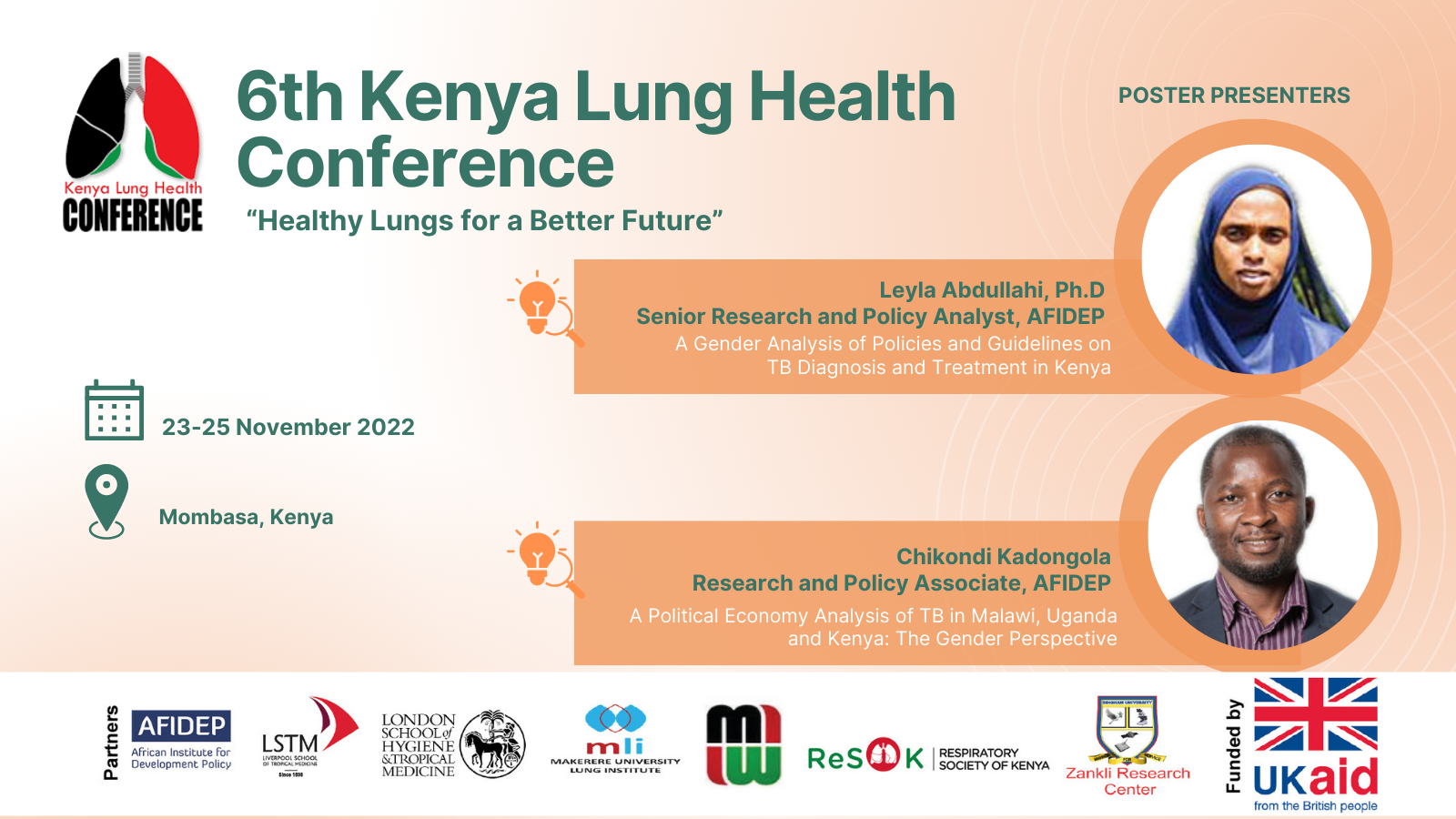Actualités

As part of the Leaving no-one behInd: transforming Gendered pathways to Health for TB (LIGHT) consortium, African Institute for Development Policy (AFIDEP) will be participating at the 6th Kenya Lung Health Conference taking place from 23 to 25 November 2022.
The conference theme, “Healthy Lungs for a Better Future,” discusses the need for better global health solutions that take into account the latest science research. It provides a forum to relay the most recent data and advancements in clinical practice and research related to lung health and respiratory medicine.
The LIGHT consortium is a cross-disciplinary global health research programme funded by UK aid, and is led by the Liverpool School of Tropical Medicine (LSTM), working with several partners including AFIDEP. LIGHT works with decision-makers in Nigeria, Malawi, Kenya and Uganda to provide the latest evidence on the need for gender-sensitive approaches to end TB. In Kenya for instance, men accounted for 67% of all TB cases that were reported in 2021. Globally, an estimated 10.6 million people fell ill with TB in 2021, with men accounting for 57% of those affected. Evidence highlights that the absence of strategies to address issues with men’s access to healthcare services is among the causes of this disparity in TB outcomes.
Further evidence on this disparity and its impacts was revealed through studies conducted under the LIGHT consortium. At the conference, Dr Leyla Abdullahi, Senior Research and Policy Analyst and Mr Chikondi Kadongola, Research and Policy Associate, both from AFIDEP, will represent the consortium in presenting posters based on the studies. Dr Abdullahi’s poster on “A Gender Analysis of Policies and Guidelines on TB Diagnosis and Treatment in Kenya” draws attention to how policies in Kenya could be strengthened in addressing the high prevalence of TB in men. Mr Kadongola will be presenting a poster titled “A Political Economy Analysis of TB in Malawi, Uganda and Kenya: The Gender Perspective”. The political economy analysis was conducted to improve the understanding of the deeply rooted social, political and economic factors that influence health to inform interventions that can best support decision-making on gendered TB services.
Gender-sensitive approaches which enhance male access to quality TB healthcare can improve health outcomes and reduce transmission to other vulnerable populations in the community, including women and children. With a particular focus on lung health concerns of considerable public health relevance in Kenya, the conference includes training workshops, symposiums, and plenary sessions featuring international and local speakers to put into focus urgent and much-needed strategies for a healthy nation.
Download the posters being presented here: 6th-lung-conference-poster-1.pdf

